No. 72 (2023): SACQ 2023
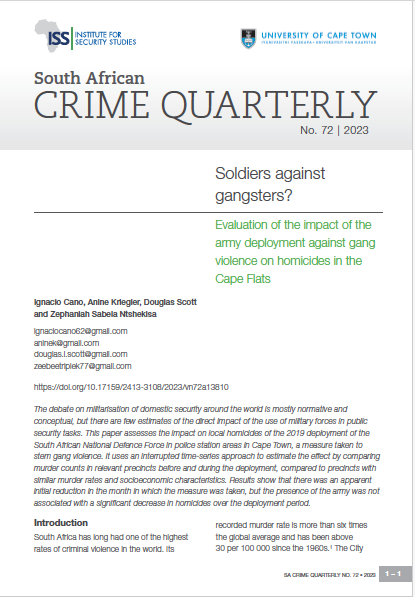
The 2023 issue of South African Crime Quarterly features a paper by Ignacio Cano, Anine Kriegler, Douglas Scott and Zephaniah Sabela Ntshekisa that examines the 2019 deployment of the South African National Defence Force in police station areas in Cape Town to stem gang violence. The authors argue that while gang violence initially reduced, it did not decrease significantly long term.
Based on 22 months of ethnographic research in regional courtrooms in the Thohoyandou area, Sonia Rupcic examines how remand detention predisposes defendants to dismiss state-sponsored legal counsel in favour of self-representation. She finds that self-representation proved prejudicial to defendants beyond questions of legal competence, arguing that trial delays and remand detention have a synergistic relationship that thwarts the cause of justice beyond concerns with defendants’ liberty interests.
Erna Viljoen, Kerstin Tonsing and Juan Bornman show that police officers who need to take statements from persons with a communication disability face challenges relating to the transactional nature of communication, lack of resources to support communication during statement-taking, the vulnerability of complainants with communication disabilities, and police pessimism. Based on focus groups with SAPS members, they recommend that disability sensitivity training, as well as training on communication disability, be provided to police officers.
Mariksa Fourie, Philip Steenkamp, Jacqui-Lyn McIntyre and Clint Oellermann describe the current scale and nature of the illicit cigarette trade and evaluate the attempts to combat it in South Africa. The authors conclude with recommendations on measures the state, commerce and legal authorities could take to confront the problem with a reasonable chance of success.

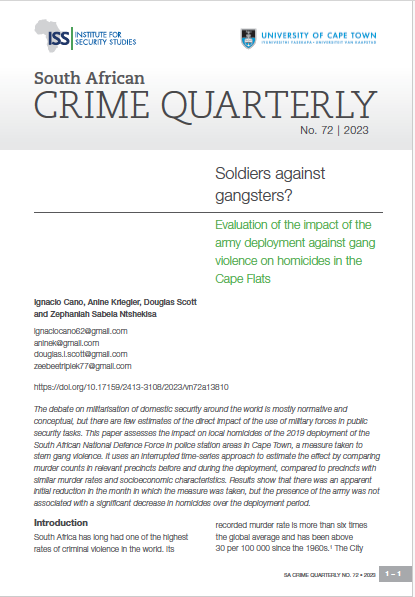
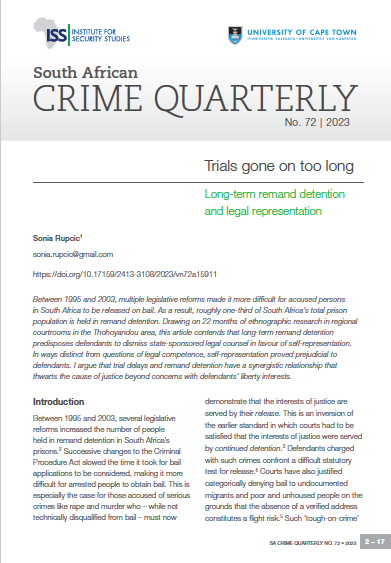
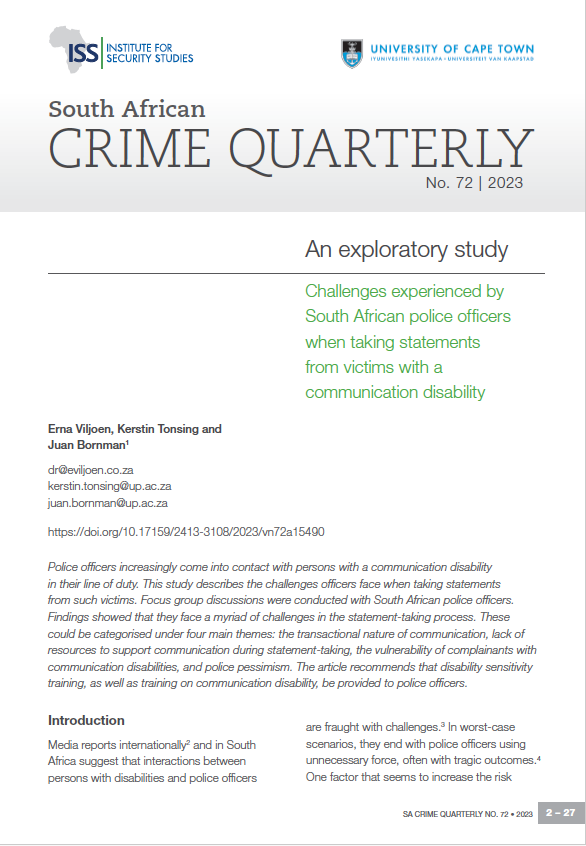
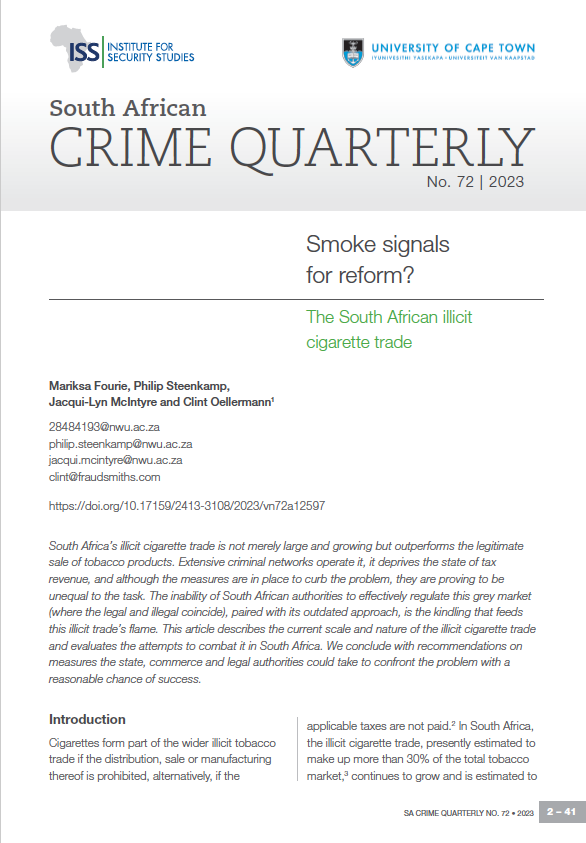

.png)